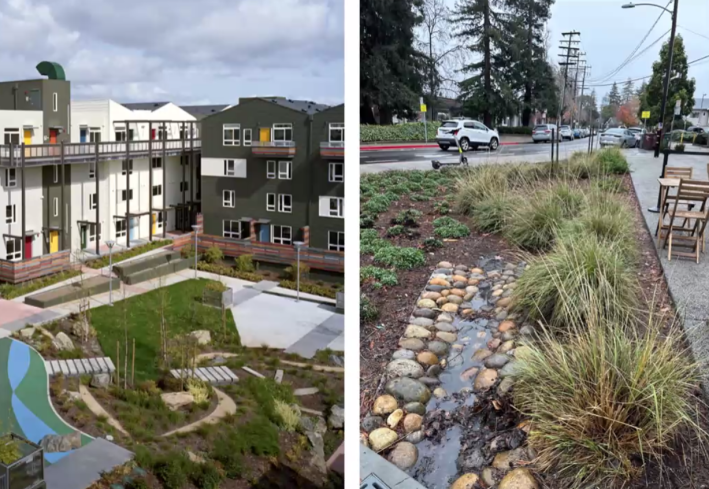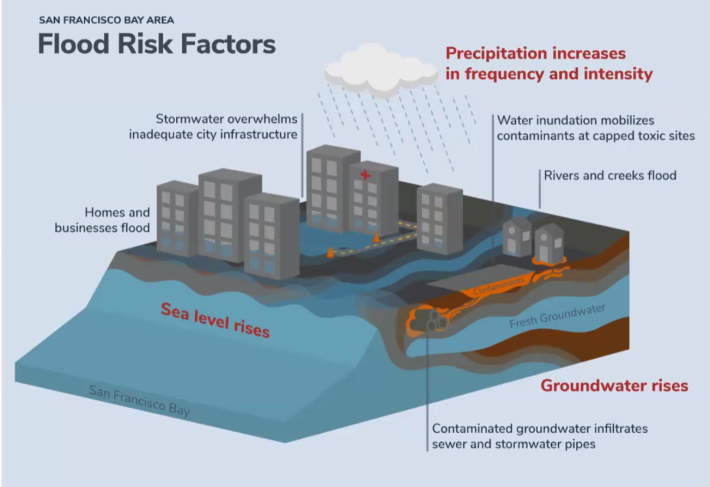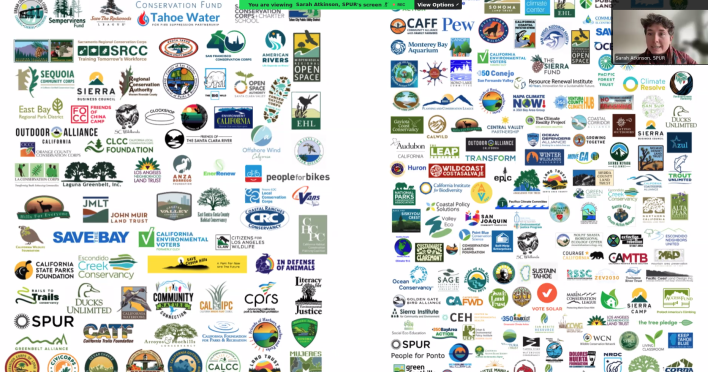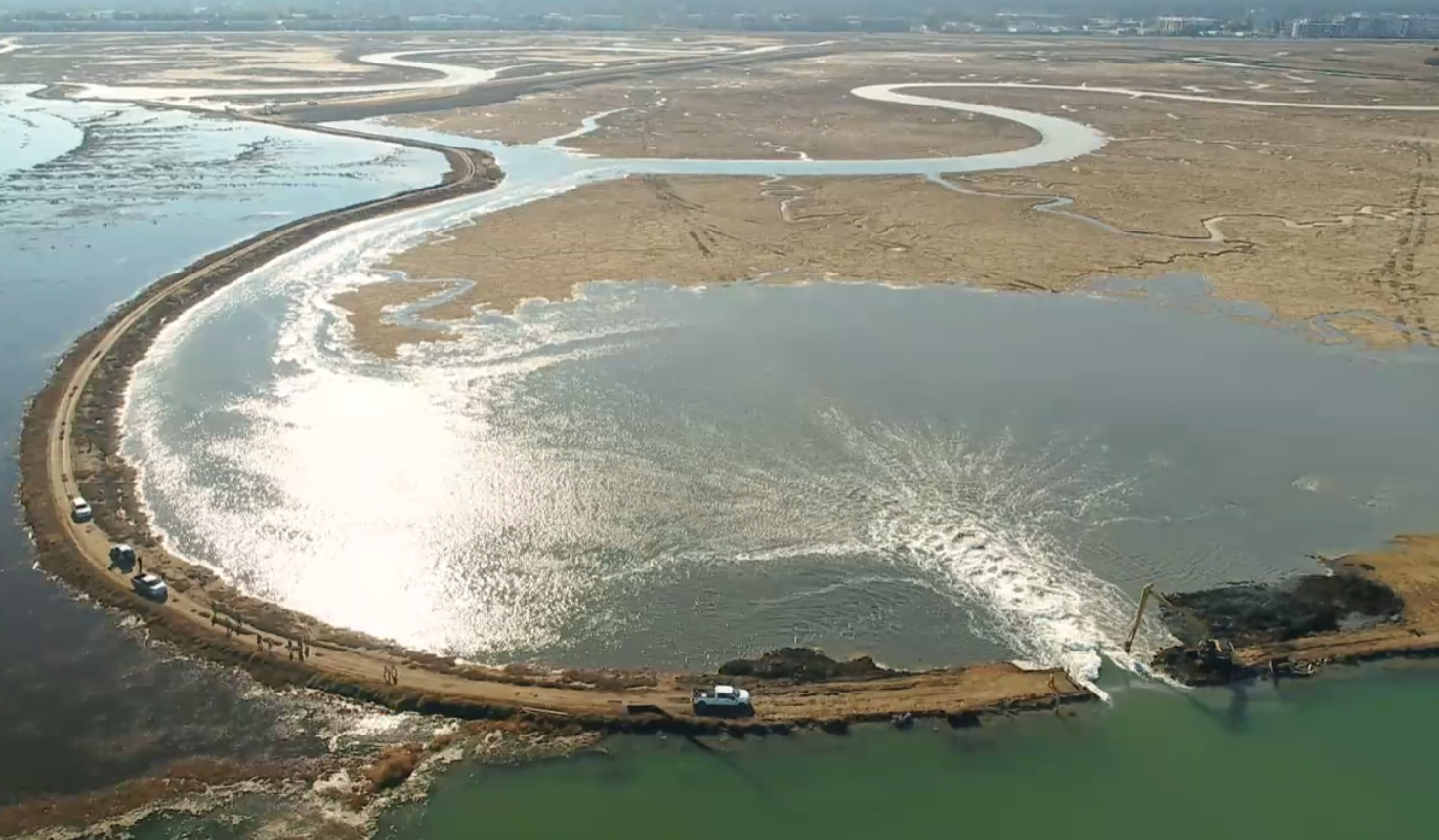What’s more expensive: cleaning up flooded buildings and streets after a major storm, or investing in storm drain improvements that prevent the flood in the first place?
That is the crux of the argument in favor of Proposition 4, a $10 billion climate infrastructure bond that will be on the November ballot. “The price of Prop. 4 may seem high,” explained Sam Fishman, Sustainability and Resilience Policy Manager for SPUR, during a panel discussion Tuesday about the importance of continuing to fund Bay Area and statewide preparations for the effects of global warming. “With the right funding priorities, we can save the state more than $60 billion in disaster loses.”
That means the state has to continue to invest in improving infrastructure around the Bay Area’s coastline, as well as adding bioswales and other measures inland to absorb more water.
“More intense storms will cause flooding inland,” warned Joshua Quigley with Save The Bay and another of the panelists. “People already see streets becoming rivers and lakes during storms. We saw lots of this last winter.”

As Fishman explained, not all infrastructure is made out of concrete and rebar. The lead image is of a re-established wetland, which acts as a buffer against storm surges. “Historically, we’ve lost about 90 percent of our tidal marsh, which has left us without the ability to absorb rising tides and storm runoff,” explained Quigley. “So we advocate for natural improvements and creating living buffers that can absorb storm surges and adapt as sea levels rise.” Under the water, that can mean just adding dirt and re-creating a gentle slope between coastal communities and the water.

But Prop. 4 isn’t only about preventing floods. The panelists explained that fires are getting much worse as well because of global warming.
“Wildfires in California have burned 7.5 million acres since 2020, caused 50,000 premature deaths [mostly from smoke pollution] and $400 billion was lost in economic impact just since 2020,” explained Jordan Grimes, Resilience Manager with Greenbelt Alliance and another of the panelists. “$1.5 billion from the bond will go to creating fire breaks,” he said. It will also help thin forests and improve early detection, so fires are stopped before they spread and cause massive harm.
Global warming is also worsening droughts, straining the state’s clean water supply. “Prop. 4 provides $610 million for safe drinking water,” explained Jennifer Clary, California Director, Clean Water Action. “$386 million will go to improved groundwater storage.” Money will also go to dam safety, desalination, conservation, and developing new water sources. “We really have to figure out how to maintain water supplies in a hotter climate.”

Other portions of the bond will go to improving the tree canopy in cities and providing cooling centers. “In many communities people currently have no where to go when temperatures hit 100~110 degrees,” said Grimes. “Much of the funding will go to providing those centers.”
So why is a bond required, instead of continuing to fund such projects from the state’s general fund? The panelists explained that the state budget deficit resulted in severe cuts to ongoing projects. If work stops on these projects, it’s just going to jack up costs in the long run. “We see Prop. 4 as filling a critical funding need in the Bay Area and statewide,” said Fishman.
Save the Bay is planning a follow-up discussion on Prop. 4 in October. For more events like these, visit SPUR’s events page.
The post SPUR Talk: Prop 4, the Climate Bond appeared first on Streetsblog San Francisco.
The post SPUR Talk: Prop 4, the Climate Bond appeared first on Streetsblog California.





